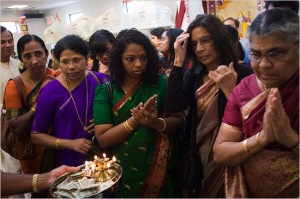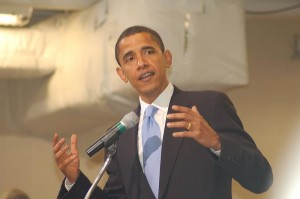By Sandra Moon, RP Staff, on Mon Nov 14, 2011 at 1:30 PM ET
Former Prime Minister of the United Kingdom Tony Blair offers 10 do’s and don’ts for religion and democracy. [CNN Belief Blog]
Christians and other religious minorities from the Middle East find refuge here in the U.S. from war and religious persecution. [The Tennesseean]
In the wake of Penn State’s sex abuse scandal, comparisons have been made to the scandals in the Catholic Church. One writer examines the similarities and differences of sexual abuse in these two institutuions. [Washington Post]
By Jonathan Miller, on Mon Nov 14, 2011 at 8:30 AM ET  You aren’t going to believe this. I’m stuck in Israel, my passport’s stolen, and I need each of you to wire me $10,000 US$… You aren’t going to believe this. I’m stuck in Israel, my passport’s stolen, and I need each of you to wire me $10,000 US$…
OK, this is not one of those posts.
Indeed, I landed in Tel Aviv yesterday, and I’m already having a fantastic experience.
Periodically, when I get back to my hotel room, I will post accounts of my travels this week in the Holy Land. Don’t expect a boring travelogue; I hope to share with you some unique insights, history lessons, geopolitical analysis, and maybe a few jokes.
So, please check in periodically. And if you really want to wire me some money…
By Mona Tailor, on Fri Nov 11, 2011 at 12:00 PM ET  It’s amazing to see how far women have come in the last century: voting rights, moving into the world of work, while balancing motherhood, and even running for the highest office in the land, President. We have such amazing figures to inspire us: Eleanor Roosevelt, Jacqueline Kennedy, Indira Gandhi, Geraldine Ferraro, Hillary Clinton, and Condoleeza Rice, just to name a few politically inspiring ones. It’s amazing to see how far women have come in the last century: voting rights, moving into the world of work, while balancing motherhood, and even running for the highest office in the land, President. We have such amazing figures to inspire us: Eleanor Roosevelt, Jacqueline Kennedy, Indira Gandhi, Geraldine Ferraro, Hillary Clinton, and Condoleeza Rice, just to name a few politically inspiring ones.
In Indian culture, similar to many Asian cultures, parents, especially fathers always want a son. A daughter also causes excitement, but there is always the underlying thought that the girl will eventually get married, and will have to leave her parents’ household and take her husband’s name.
 In Gujarat [the Indian state where my family originates] the woman takes her husband’s first name as her middle name and takes his last name. Any children born to them also share their father’s first name as their middle name. In essence, as a daughter the girl must listen to her father, and when she becomes a wife she must listen to her husband. In this culture and this setup, I come from a very remarkable group of women, who set their own rules. In Gujarat [the Indian state where my family originates] the woman takes her husband’s first name as her middle name and takes his last name. Any children born to them also share their father’s first name as their middle name. In essence, as a daughter the girl must listen to her father, and when she becomes a wife she must listen to her husband. In this culture and this setup, I come from a very remarkable group of women, who set their own rules.
My grandmother on my father’s side was a remarkable and strong woman. In 1933 when Mohandas Gandhi inspired Indians around the country to walk with him in the Salt March, my grandmother wanted to join their cause. Her mother-in-law was not happy with her decision, gravely concerned that she would ruin the family status and appearance in society by doing such a thing, threatening her to never return to the household. My grandmother stood her ground, she was part of the Salt March, and returned home to her family, regardless of what anyone thought. This was just one of her many strengths. After my grandfather died, she raised 5 children in rural India on her own, a remarkable feat on its own..
Read the rest of…
Mona Tailor: Women’s Empowerment in the Hindu Culture
By Sandra Moon, RP Staff, on Mon Nov 7, 2011 at 1:30 PM ET As an alumna of Vanderbilt University, I get defensive when my school is wrongly criticized. In recent months, Vandy has gotten some bad press from certain news sources. Usually when Vandy gets bad press, it has something to do with the football team. This fall, however, the controversy has been centered on the university’s decision to enforce its nondescrimination policy. To Chancellor Zeppos, the Rev. Gretchen Person, and to everyone else involved with the enforcement of the university’s policy–I applaud and commend you.
Back story: The constitution of the Christian Legal Society, a student organization of Vanderbilt’s Law School, included a requirement that officers adhere to certain religious beliefs. CLS, along with a handful of other, primarily religious, student groups, were placed on “provisional status” after a university review found the groups’ constitutions to be in noncompliance with the univeristy-wide nondescrimination policy. The response from conservative news sources has been hostile. In an article published in the Daily Caller, Robert Shibley, Senior Vice President of Fire wrote “Pity the modern college administrator — it must be painful to be so politically correct that you’re forced to make embarrassing and nonsensical decisions.” Comments such as these have greatly angered me, mainly because they are unfounded. And before anyone accuses me of being a militant secularist set out to destroy religion, I want to make clear that I am a person of deep faith convictions. I was involved with a variety of student religious organizations during my undergraduate experience at Vanderbilt, and those experiences helped shape my journey that led me to seminary and to seek a vocation in ministry. That being said, let’s move on…
Read the rest of…
Sandra Moon: In Defense of My Alma Mater, Vanderbilt
By Jonathan Miller, on Fri Nov 4, 2011 at 12:30 PM ET In an otherwise excellent column on the national ramifications of next week’s Kentucky gubernatorial election, one of my favorite political journalists, Howard Fineman of The Huffington Post, writes:
And then there is the charm factor. [Governor Steve] Beshear is a good ol’ boy of the old school, the kind of guy you’d see at the lunch counter. [Running mate Jerry] Abramson — who would be the first Jew elected to statewide office in Kentucky — looks like a prosperous, well-barbered guy in the good seats at the ballgame, but he’s just as gregarious, and he’s traveling the state from Pikeville to Paducah to talk about the jobs he has managed to bring to the Louisville area. (Emphais added)
So what am I, chopped liver?
Since I am the first Jewish political contributor to The Huffington Post, I am especially offended.
(H/t to Leah McCormick Adkins, the winning Campaign Manager for Miller for Treasurer 1999)
By RP Nation, on Thu Nov 3, 2011 at 2:00 PM ET
A few of our very thoughtful readers have shared their insights on the David Williams/Hindu comments controversy covered here at The Recovering Politician. Please read below.
And if you have anything to add, we are always happy to consider unsolicited posts at staff@TheRecoveringPolitician.com. – RP Staff
==========
From Jack Burch, in his personal — not professional — capacity, submitted to the Lexington Herald-Leader:
What part of the word “respect” does Senate President and gubernatorial
candidate David Williams not understand? His attack on the participation by the Governor and Elizabethtown Mayor in the dedication of a new manufacturing plant by an Indian company was mean-spirited, disrespectful of the faith of a company and people creating jobs for Kentuckians, and, a blatant disregard for one of the most fundamental principles our nation’s founders adopted when creating a secular government.
Read the rest of…
More on the Williams Controversy from the RP Nation
By Mona Tailor, on Thu Nov 3, 2011 at 9:30 AM ET For the 27 years of my life, I have been proud to call myself a Kentuckian and a Hindu.
My parents immigrated in 1980, and in a state that had never seen Indians before, it was not the easiest at times. I remember as a first grader in the early 1990s, when other kids foundout I was Indian, they would ask me what tribe, and start dancing around me in a tribal dance, placing their hands over their mouth and chanting the stereotypical Native American songs we had only seen in cartoons. However, if they did assume the right country, the next followup question would be “Do you eat monkey brains like they did in Indiana Jones [And the Temple of Doom]?”
As I became older and India and the Indians in the community became more recognized, I could see the difference. I did not get asked these silly questions anymore. They knew where India was and what I meant when I said I was Indian. These questions lead more into religion by this point when I got older. Thankfully my parents had shared a lot of Hinduism with me as I grew up, so I was no stranger to the topic. As a child we watched the Indian epics of the Ramayana and Mahabharata, which taught principles of Hinduism but also the right moral values we should have. I learned more about Hinduism from the teachings of the Bhagavad Gita, a revered book of the Mahabharata where Lord Krishna speaks to Arjuna to encourage him to fight on the battlefield, which is just a larger metaphor for fighting in the battlefield of life.
Read the rest of…
Mona Tailor: A Hindu Kentuckian’s Perspective on Senator Williams’ Comments
By Jonathan Miller, on Thu Nov 3, 2011 at 8:30 AM ET Yesterday, Jack Brammer, the dean of Kentucky’s political reporters (and one of the nicest guys in Frankfort), revealed GOP gubernatorial nominee David Williams’ “November Surprise”: The Senate President would overcome incumbent Steve Beshear’s 30 point lead in the polls by exposing the Governor’s participation in a traditional Indian ground-blessing ceremony for a new India-owned, 250-American-jobs-creating, manufacturing plant in Elizabethtown, Kentucky.
Here’s a snippet of Williams‘ attacks on Beshear:
David Williams in a non-polytheistic situation. “He’s there participating with Hindu priests, participating in a religious ceremony,” Williams said during a campaign stop in Shelbyville. “He’s sitting down there with his legs crossed, participating in Hindu prayers with a dot on his forehead with incense burning around him. I don’t know what the man was thinking…If I’m a Christian, I don’t participate in Jewish prayers. I’m glad they do that. I don’t participate in Hindu prayers. I don’t participate in Muslim prayers. I don’t do that…To get down and get involved and participate in prayers to these polytheistic situations, where you have these Hindu gods that they are praying to, doesn’t appear to me to be in line with what a governor of the Commonwealth of Kentucky ought to be doing.”
In my latest Huffington Post piece, I tackle the national ramifications:
After this coming Tuesday’s election, we will learn if the anti-Hinduism strategy works. If Williams can grasp victory out of an almost-assured landslide defeat, expect a whole new arsenal of Indo-phobic attacks in time for 2012. Consider these questions:
Will old photos of political candidates be scoured for evidence of forehead dots and/or smelled carefully for traces of incense?
Will Apu Nahasapeemapetilon, the much-too-friendly convenience store clerk on The Simpsons emerge as the 2012 campaign’s Willie Horton?
Will the birther community find new life by exploring Barack Obama’s exposure to “polytheistic situations” during his childhood years in Indonesia? (Which sounds a whole lot like India, doesn’t it? Well, doesn’t it?)
Will Michelle Obama’s “Let’s Move” initiative finally be scrutinized for its promotion of yoga poses that reflect the idolatry-minded principles of their Hindu teachers?
And will anybody discover an old Joe Biden quote referring to Ghandi as “articulate and bright but a bit disheveled”?
Click here to read my full piece in The Huffington Post.
Namaste!
==========
BREAKING: CLICK HERE FOR A HINDU-KENTUCKIAN’S PERSPECTIVE ON THE WILLIAMS CONTROVERSY
By Artur Davis, on Wed Nov 2, 2011 at 8:30 AM ET
 The Democratic Party has a faith gap–and if anything it is getting wider. The Gallup Poll has just released data showing a chasm between the political leanings of self-described “very religious” whites, with 62% identifying themselves as Republicans and a scarce 27% identifying as Republicans. At this point, no other demographic skews more heavily toward Republicans than faith oriented whites, and the electoral consequences are unmistakable: it correlates almost evenly with the overwhelmingly Republican preferences of southern whites, who are the most religious whites in America, and further defines why a slew of states with large blocs of evangelical leaning whites are drifting away from Barack Obama, from Ohio to Virginia, to Florida, to Indiana, to Colorado. The Democratic Party has a faith gap–and if anything it is getting wider. The Gallup Poll has just released data showing a chasm between the political leanings of self-described “very religious” whites, with 62% identifying themselves as Republicans and a scarce 27% identifying as Republicans. At this point, no other demographic skews more heavily toward Republicans than faith oriented whites, and the electoral consequences are unmistakable: it correlates almost evenly with the overwhelmingly Republican preferences of southern whites, who are the most religious whites in America, and further defines why a slew of states with large blocs of evangelical leaning whites are drifting away from Barack Obama, from Ohio to Virginia, to Florida, to Indiana, to Colorado.
There is a mindset in some Democratic circles that religious whites are disproportionately economic conservatives who are natural Tea Party sympathizers. While Gallup did not test specific issues, I have seen a slew of polling data from Alabama–a top two ranked state in football and religiosity–that shows religious whites are often economic populists, distrust corporate elites, don’t mind putting more taxes on those elites, and that surprising shares of them embrace the notion of more government spending on education and, yes, safety nets like Medicaid. They are proud, church-going denizens of the 99 percent, in Occupy Wall Street parlance.
But if the economic lean of religious whites is surprisingly to the left, their stance on social issues leans hard in the other direction. The Public Religion Research Institute recently found that in a country where voters are sharply split on abortion, only 29% of “evangelical” whites favor its legalization, while almost two thirds oppose. Similarly, on same sex marriage, which elite opinion now conclusively favors, and on which the public is split in half, over 80% of white evangelicals oppose legalizing gay marriage.
 So, in practice, religious whites have voted their sectarian leanings over their economic tendencies. Breaking that pattern was until recently a major Democratic preoccupation. A succession of Democratic thinkers, most notably Jim Wallis, tried to pry the door open by re-casting liberal policies on healthcare, poverty, and educational access as faith-based priorities, grounded in Matthew’s New Testament admonition to advance the interests of the “least of these”. Barack Obama’s keynote address in 2004 sounded an eloquent note that “in the blue states, we worship an awesome God and in the red states, we have some gay friends.” In 2005, Obama’s first high profile speech as a Senator linked his political vision to his faith and its promises of a more seamless community, and during the years of Obama’s rise, there seemed to be a genuine affinity between he and Rick Warren, the avatar of the “purpose driven life” and an evangelical icon. So, in practice, religious whites have voted their sectarian leanings over their economic tendencies. Breaking that pattern was until recently a major Democratic preoccupation. A succession of Democratic thinkers, most notably Jim Wallis, tried to pry the door open by re-casting liberal policies on healthcare, poverty, and educational access as faith-based priorities, grounded in Matthew’s New Testament admonition to advance the interests of the “least of these”. Barack Obama’s keynote address in 2004 sounded an eloquent note that “in the blue states, we worship an awesome God and in the red states, we have some gay friends.” In 2005, Obama’s first high profile speech as a Senator linked his political vision to his faith and its promises of a more seamless community, and during the years of Obama’s rise, there seemed to be a genuine affinity between he and Rick Warren, the avatar of the “purpose driven life” and an evangelical icon.
Read the rest of…
Artur Davis: The Democratic Party’s Faith Gap
By Sandra Moon, RP Staff, on Mon Oct 31, 2011 at 1:30 PM ET
Today you might engage in various Halloween traditions and festivities, but you might not know how the holiday came about. Here’s an article about the origins and evolution of Halloween. [Evansville Courier & Press] [Evansville Courier & Press]
Should Christians celebrate Halloween? Some claim it’s the devil’s holiday, while to others it’s a harmless night of fun. [CNN Belief Blog]
Watch this season of the TV show Dexter for some interesting commentary on science and religion. [NPR]
|
The Recovering Politician Bookstore
|














